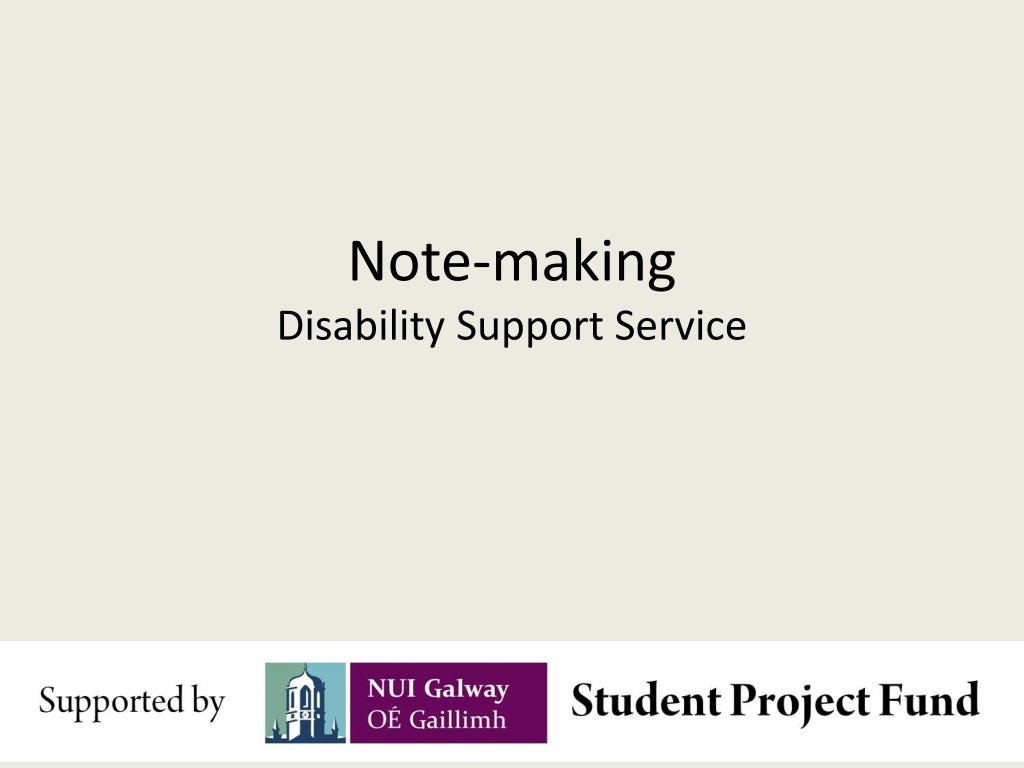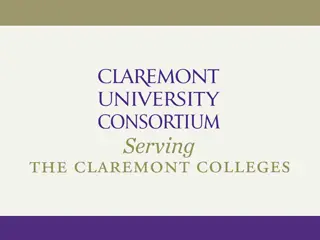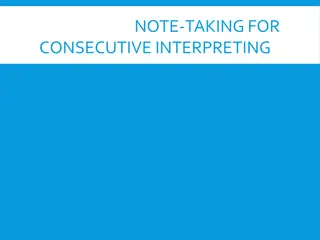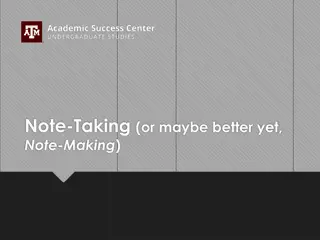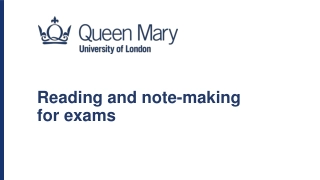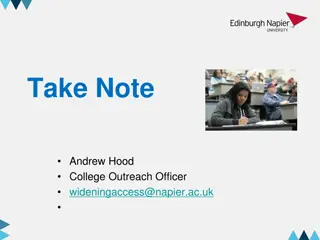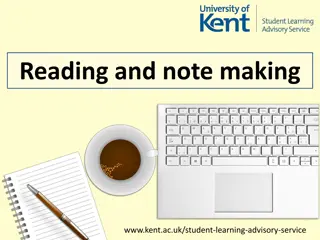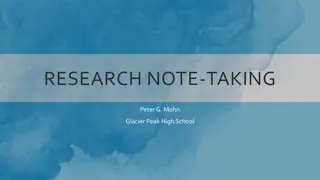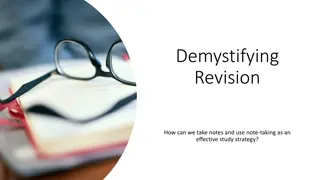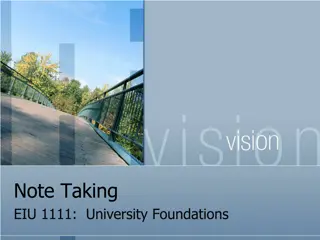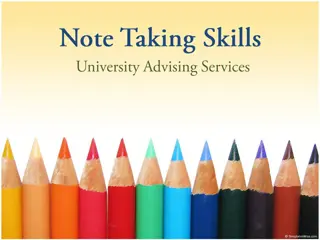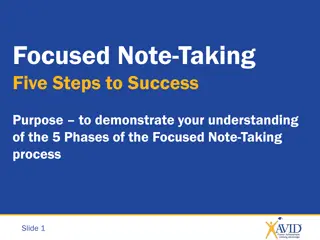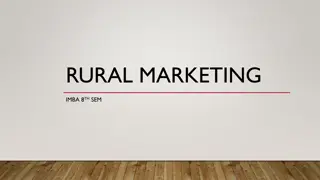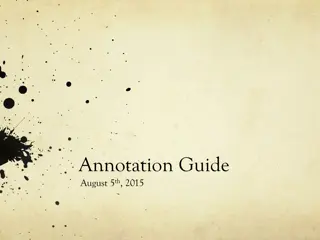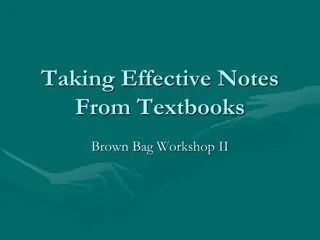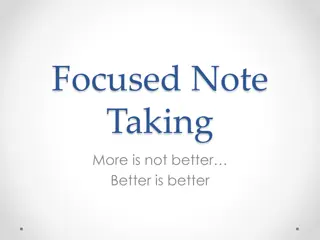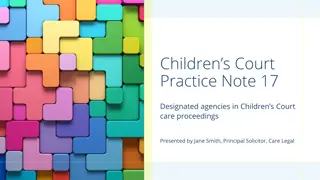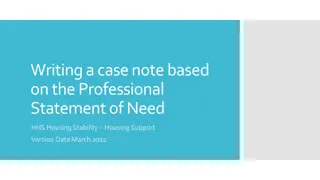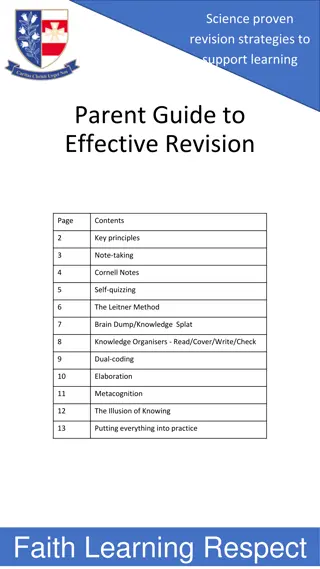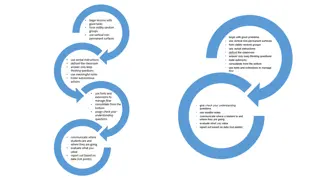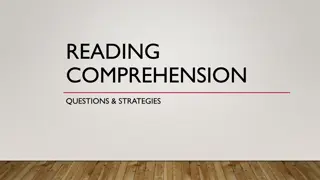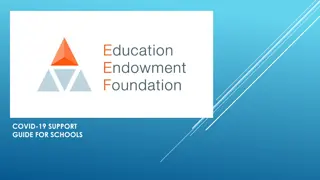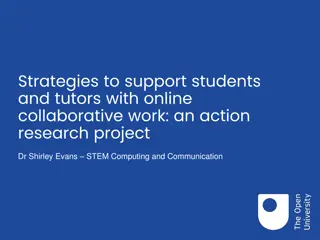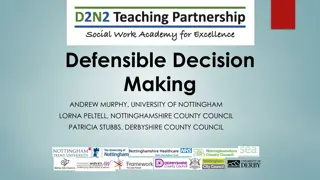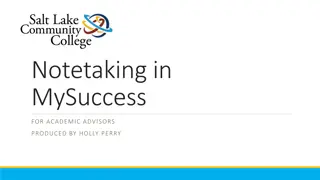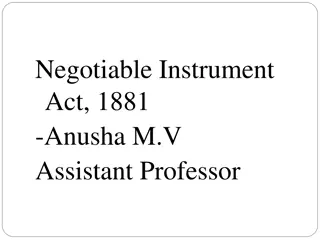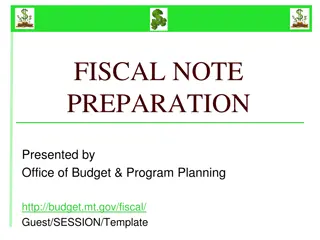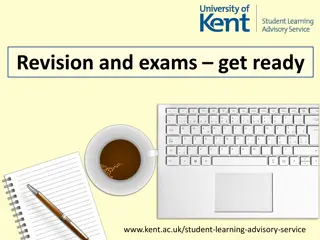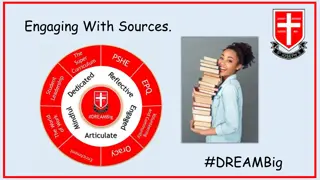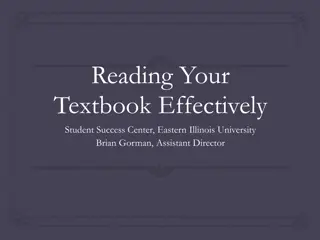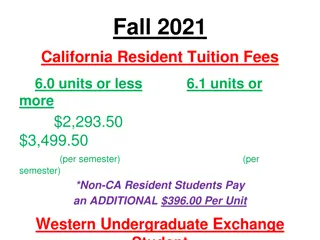Effective Note-Making Strategies for Students
Studies have shown that note-making is crucial for retaining information. This guide provides tips on how to improve your note-making skills, including preparing before class, taking notes during class, and reviewing notes after class. Techniques such as the Cornell Note-Making Method are discussed to help students enhance their note-taking abilities and boost their academic performance.
Download Presentation

Please find below an Image/Link to download the presentation.
The content on the website is provided AS IS for your information and personal use only. It may not be sold, licensed, or shared on other websites without obtaining consent from the author. Download presentation by click this link. If you encounter any issues during the download, it is possible that the publisher has removed the file from their server.
E N D
Presentation Transcript
Note-making Disability Support Service
Retaining Information Studies have shown that people forget 50% of a lecture within 24 hours 80% of a lecture in 2 weeks 95% of a lecture within one month if they DO NOT make notes.
Work to improve note-making Here s a task: Go back to class notes that you took earlier this week. Do they make sense? Do you feel as though you are in the lecture and hearing the lecturer talk about the topic? Go back to class notes that you took earlier this month. Do they make sense? Do you feel as though you are in the lecture and hearing the lecturer talk about the topic?
How to improve note-making Before class Read assigned material Review notes from previous lecture Sit near the front of the class in the centre of the room Start each lecture on a new page, write the date on it as well as on any hand-outs given Identify the textbook chapter by name at the top of the leading page, if relevant
How to improve note-making During class Carefully listen at the start of the lecture for an overview of the main topics of the lecture Maintain focus to identify the most important information Write key points, background information, dates, key terms, definitions, examples, formulas. Don t attempt to capture every word. Listen carefully at the end of the lecture for a summary of the main points.
How to improve note-making After class Review, revise or edit notes as soon as possible Rewrite notes, if necessary In your notes, highlight and summarize the main points of the lecture
Methods Cornell Note-making Method Listen, think, & create lecture notes. Organize your notebook like this: Question Column Cue Column response to the question How to prepare for note-making Preparation read the assignment How to take notes during class Pay attention and watch for cues Participate in class discussion. Ask questions. After class Review notes as soon as possible after class Rewrite notes to help remember Summary of the main points Read the assignment before class to enable participation in the class discussion and to get any questions answered. Pay attention so as not miss important information. Review notes for clarity and understanding as soon as possible after a lecture.
Methods Outline Method Organizational technique to show main points, sub- points and details. Enables presentation of information in a more organized way. Effective note-making techniques help to: o Create an outline of a class lecture or textbook reading o Summarize and retain important information o Practice critical thinking skills to connect with information
Methods Mind Mapping Method Ability to see the big picture and how information relates Useful method to review notes Allows creativity
Mind mapping example http://en.wikipedia.org/wiki/Mind_map#mediaviewer/File:MindMapGuidlines.svg
Skills4Study module Reading and note-making Reading and note-making provides strategies to help students select relevant information through lectures, reading, discussion and their own research, as well as approaches for making effective notes that will prove useful later on. Sign up via Blackboard: Learning Centre
Conclusion Don t try to write everything that the lecturer says oBe prepared for class oUse critical thinking skills Review your notes and practice oSchedule time to review notes in your daily schedule. oTalk about what you are learning with others
References http://www.eiu.edu/~lrnasst/notes.htm http://www.westshore.edu/webs/ltc/cornell_note_ta king_method.htm http://printables.familyeducation.com8%2C33953%2 C28212%2C28213%2C28214%2C9211%2C28719 Cornell Method information adapted from How to Study in College 7/e https://www.svcc.edu/students/success/workshops- pdf/note-taking.pdf
